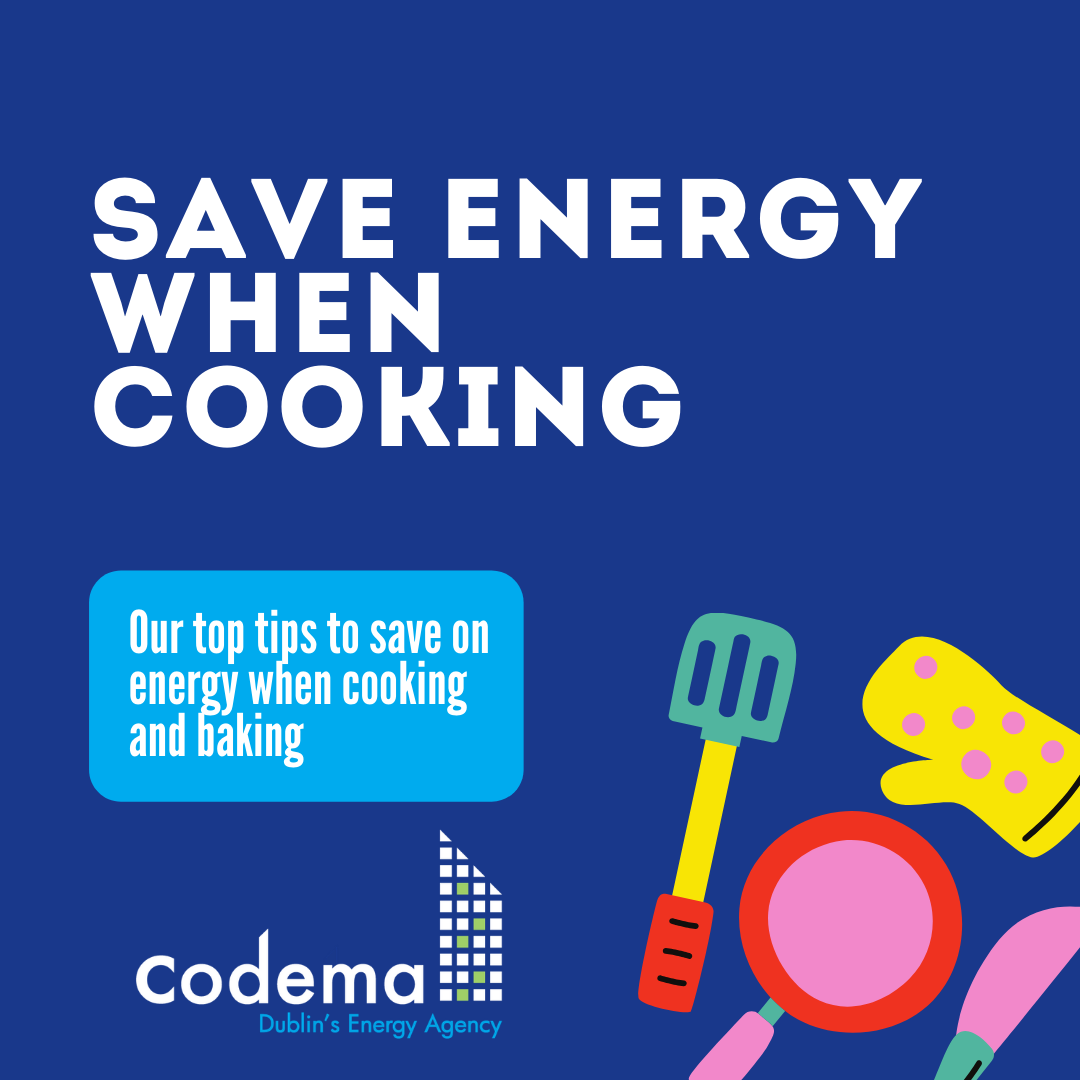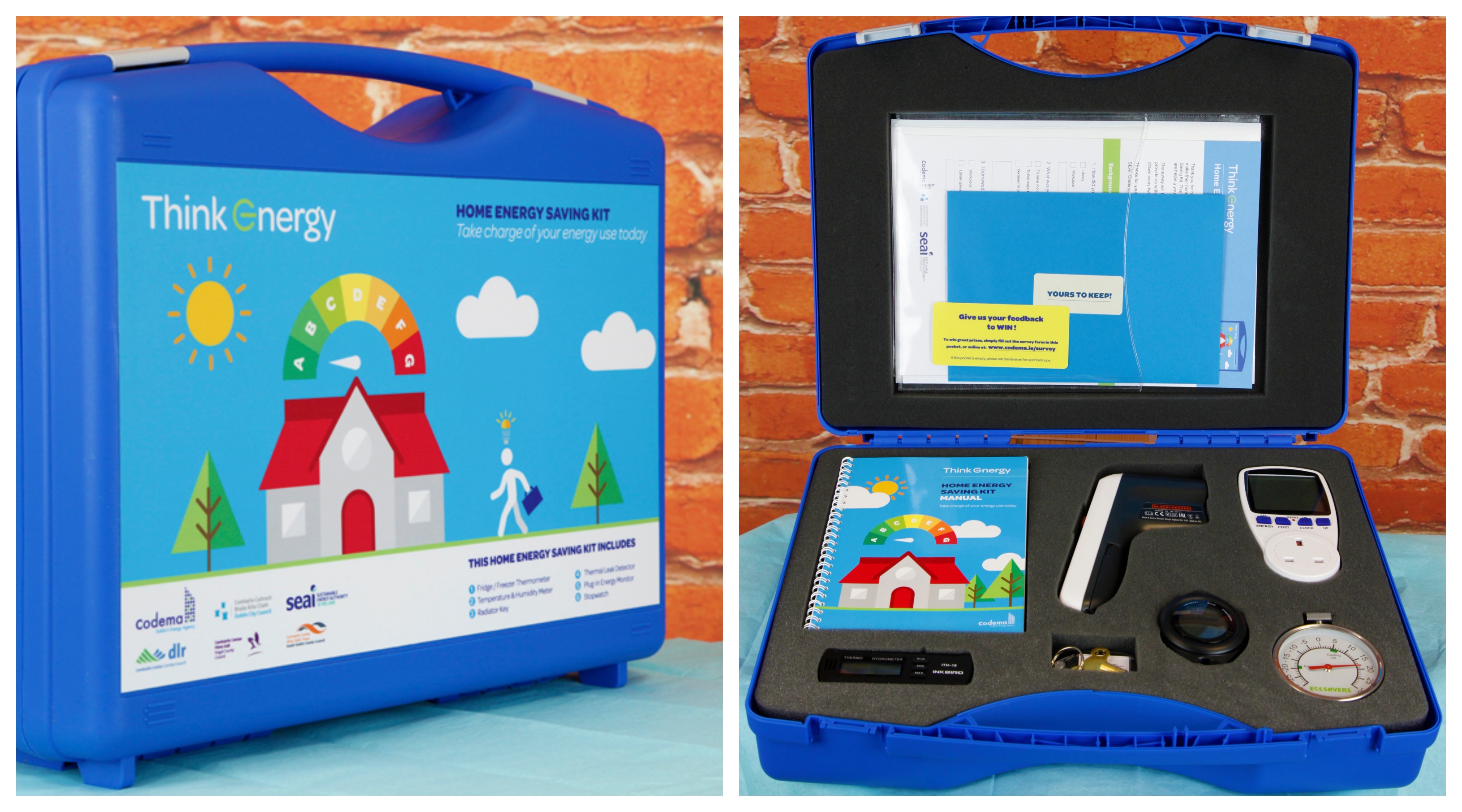Cooking and Baking at Home - How to Save Energy
Cooking and Baking at Home - How to Save Energy
By Suzane Fitzpatrick, Communications Manager with the Dublin Energy Agency Codema

Did you know that cooking and baking makes up 3% of the total energy we use in our homes in Ireland? While it might not sound like much, many of us are using cookers, microwaves, food processors and lots of other appliances and gadgets to prepare and cook our food each day. What’s more, as we spend more time at home due to the Covid-19 pandemic, we are cooking and baking now more than ever. The good news is that there are lots of simple things we can do to save energy when channelling our inner MasterChefs, and this will help to keep those energy bills low as well!
So what are Codema’s top tips for saving energy when cooking and baking at home? Here’s some we prepared earlier:
Be Prepared
Timing is key - make sure that you have all your timings down to a tee so that you aren’t turning on ovens or other appliances any longer than you need to.
Get all your ingredients ready at once so that you are not constantly opening and closing your fridge and freezer, as this will use up more energy.
Carefully weigh out all your ingredients to reduce food waste.
Making a meal plan for the week will help you to cook three or four dishes in one go. This will reduce the amount of energy your oven uses and you can then freeze these dishes and defrost when you need them.
It’s fun to get messy when you’re cooking and baking but remember to protect your clothes with an apron to cut down on that washing load!
The Main Event
Don’t open your oven door too often during cooking times, as you can lose up to 20% of the oven’s heat when you do this.
Batch cook meals together, such as a vegetable lasagne and apple pie. This will reduce the amount of energy your oven uses, and let’s be honest, who’s gonna complain when the dessert is ready at the same time as the main course!
Make use of residual heat (this is heat that has built up) by turning off the oven for the last few minutes of cooking time. When finished, you can leave the oven door open to heat your room.
Use pots and pans that cover the whole of the size of the cooker ring. When you are almost done, turn off the rings and use the heat that has built up so far to finish cooking.
Use lids on pots and pans while cooking. This will speed up cooking time and save energy.
Boil the water in your kettle before using it for cooking. This will speed up cooking time.
Use the toaster instead of the grill for toasting bread.
Be clever about how you use kitchen appliances, such as a food processor or sandwich maker. Make sure to only use them at the correct temperature and for the required amount of time.
Use a microwave for smaller meal amounts instead of using your oven or stove.
Cleaning your oven isn’t the most exciting task but keeping it clean will help to reduce cooking time, as the cleaner your oven is, the quicker it can reach the desired temperature.
Replace the door seals of your oven if they are worn, split or broken, as this can decrease the efficiency of your oven.
Consider using a slow cooker or pressure cooker as they save both energy and time while producing great food.
When baking, ask yourself if you really need so many gadgets (food processor, electric whisk, etc.). Baking by hand is a more traditional method and is often more enjoyable!
Use the timer on your mobile phone to track the cooking time so you are not using your oven and hob more than you need to. It will prevent you from burning your food as well!
Cleaning Up
Run your dishwasher on the eco setting and ensure it is always full before you turn it on. If you can, turn off the dishwasher before the drying cycle and let the dishes air dry instead.
Cool hot food before putting in the fridge or freezer, otherwise these appliances will have to work harder to cool it down.
Boil only as much water as you need to steep pots, etc. when you are cleaning up. Better still, invest in an eco-kettle, which will help you boil only as much water as you need.
Make sure to freeze those leftovers to use another day. Not only are you cutting down on food waste, but keeping your freezer full is more energy-efficient.
If you are storing leftovers in your fridge or freezer, make sure these appliances are at the right temperature setting. Your fridge should be set between 3-5 degrees and your freezer should be between -15 and -18 degrees. You can use our Fridge-Freezer Thermometer in our Home Energy Saving Kit (available to borrow from over 100 libraries in Ireland) to measure this.
More information and energy saving tips
Don’t forget that you can also borrow our Home Energy Saving Kit from your local library, which has 5 easy tools to see how energy efficient your home is and to guide you on where you can improve, including a plug-in energy monitor to measure the energy use (and cost) of many kitchen appliances you use when cooking and baking. Find out more
